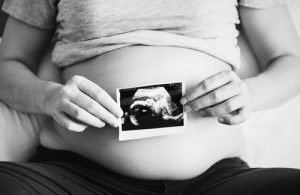 More than 1 in 10 women in the UK develop a mental illness during pregnancy or within their first year after having a baby. Many more are left struggling, undiagnosed and untreated. According to the Maternal Mental Health Alliance, 7 out of 10 women who are struggling will hide or downplay the severity of the struggles they are experiencing .
More than 1 in 10 women in the UK develop a mental illness during pregnancy or within their first year after having a baby. Many more are left struggling, undiagnosed and untreated. According to the Maternal Mental Health Alliance, 7 out of 10 women who are struggling will hide or downplay the severity of the struggles they are experiencing .
Examples of common perinatal or maternal mental health conditions include:
- antenatal depression,
- postnatal depression,
- anxiety,
- perinatal obsessive compulsive disorder,
- postpartum psychosis and
- post-traumatic stress disorder (PTSD).
The personal experience of these conditions will vary from mother to mother, and the levels of support the mother has make a big impact on how well they manage their symptoms. During pregnancy and after is a time of excitement, but also for many a time where fears and doubts start to creep in. Combine this with broken sleep leading to crippling tiredness, hormonal changes, and trying to adapt to a completely different routine and it’s no wonder that many women struggle.
The COVID-19 pandemic understandably adds further stress and may cause anxiety in some people. In many countries the way maternal health is managed has changed radically over the last few months, with pregnant woman no longer receiving in person or face to face care. Emerging evidence that a rare inflammatory illness linked to Covid19 is occurring in babies and small children is also causing anxiety levels to skyrocket for some parents.
The National Council for Hypnotherapy (NCH) supports women who are having issues with their mental health. As scientific evidence mounts that hypnotherapy helps mothers feel in control to give birth calmly, more midwives in the UK are training as hypnotherapists. There’s also increasing evidence that hypnobirthing and teaching expectant mothers self-hypnosis techniques can improve antenatal mental health outcomes for both parents and the child.
Partners who are involved with the hypnobirthing training also report feeling significantly more relaxed and confident about becoming a parent and the NCH provides research that babies born to mums who have practiced hypnosis and deep relaxation techniques during labour may also be calmer, sleep better and feed better.
The National Council for Hypnotherapy has almost 1,800 clinical hypnotherapists across the UK who can teach these skills along with hypnobirthing in a confidential, encouraging and non-judgemental way.
To find a suitable NCH therapist near you, simply click here.
